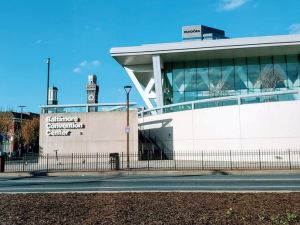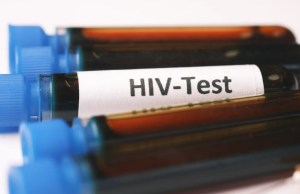
By Nadine Matthews
Special to the AFRO
Many people moved during the COVID shutdown because working remotely made it possible for them to do so. Some moved back to their hometowns to be closer to family. For 27-year old Baltimorean Christopher Trotman, he had to move because with his pre-existing condition, COVID made living with others a more dangerous prospect. “I was living with four other people when COVID started and I moved into a studio apartment even though financially it was a hardship for me.”
Trotman has sickle-cell anemia, a genetic disorder that can inhibit the delivery of oxygen to the body’s cells. At the outset of the pandemic the twenty-seven year-old, now working on his Masters degree in social work, says he was contacted by his doctors. They told him that this pre-existing condition put him at much higher risk than most of the population. “They contacted me and were trying to make sure I was taking it seriously. and warned me to be extra cautious because of my condition.”
Despite all the precautions he took, after getting fully vaccinated Trotman, by that time also interning at Johns Hopkins, contracted COVID. Because of his pre-existing condition he was contacted by both the Maryland Health Department and the Sickle Cell Center at Johns Hopkins, where he had already been getting treatment for his sickle cell condition. They both offered the monoclonal antibody treatment (mAb).
Dr. Sophia Purekal, medical director of the Infusion Center at Baltimore Convention Center Field Hospital (BCCFH), explained to the AFRO that this treatment “Is not approved by the FDA but was authorized for emergency use because it showed evidence of protecting people from worsening disease. In trials, people who got the medication, versus people who got placebos did better at staying out of the hospital.”
Over the past 11 months, the BCCFH has accounted for roughly one-fifth of the more than 14,000 patients infused with mAb in Maryland. It is believed that the treatments helped avoid 700 hospitalizations and nearly 300 deaths.
Monoclonal antibody treatment, which historically has been used in areas such as oncology, is not a cure for COVID. It is utilized to mitigate the impact of the disease, which is why it was geared toward high risk patients as opposed to the general population. “It’s different from vaccines in that it doesn’t confer ongoing immunity,” explained Purekal. “It was designed to keep people out of the hospital, so we wanted to target the people who stand to benefit the most; those at higher risk of COVID putting them in the hospital.”
Purekal had been working in adult primary care at a Federally Qualified Health Center and in addiction medicine just before the pandemic. When it started, she looked for something that would allow her to help in the fight against COVID. “I started working with a number of COVID related projects then started working full-time at the field hospital when the Infusion Center opened and hired as co-director there.”
Fortunately, Trotman explained, receiving the monoclonal antibody treatment was fairly easy and painless. “It took about an hour. A nurse took my vitals and gave me basically an IV but half the normal size, and observed me for about half an hour afterward.”
BCCFH also contacted Trotman prior to his appointment and explained the procedure step by step so he knew exactly what to expect. Trotman was also concerned about the cost. “I didn’t have insurance at the time so I was worried about that.” Fortunately, the treatment is totally free to anyone who needs it. Transportation to and from the center is also covered.
For those who are hesitant about receiving the mAb treatment or the COVID vaccine, Trotman advises others to stick to the facts, “My advice is listen to the research. And if you don’t want to do that, listen to the data that’s out there at this point. Listen to what doctors and epidemiologists say. Base your decision from that, not from what unqualified people tell you, because at this point, it’s just going to keep getting more and more deadly if people don’t get vaccinated or get treatment.”
Help us Continue to tell OUR Story and join the AFRO family as a member – subscribers are now members! Join here!
The post Baltimore Convention Center field hospital offers crucial COVID treatment for high risk groups appeared first on AFRO American Newspapers .










